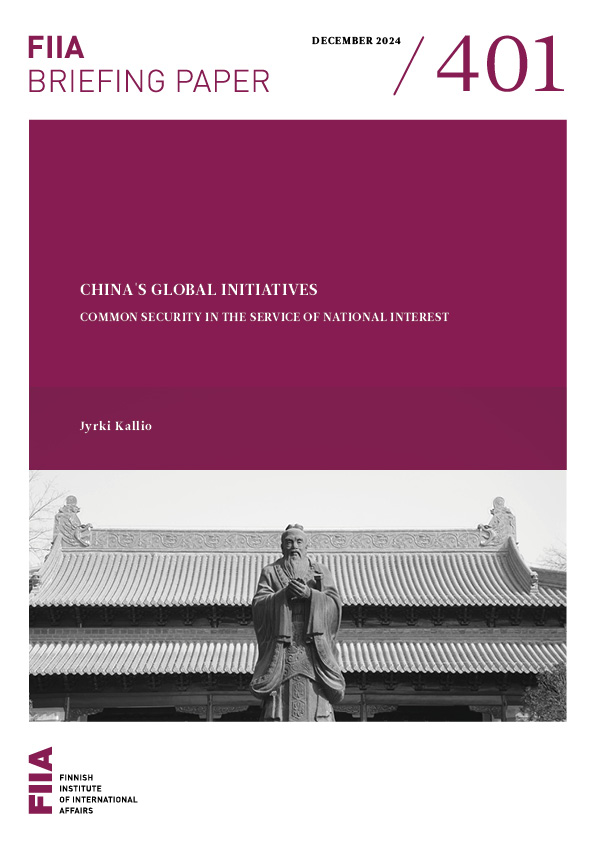Foreign policy rarely plays a decisive role in congressional elections in the US. However, President Trump’s tendency to mix foreign policy into the domestic debate might increase its salience. Electoral success for the Democrats could both constrain and embolden the president’s international conduct.
The upcoming congressional midterm elections on November 6, 2018 will serve as the first electoral litmus test for Donald Trump’s presidency. Trump’s foreign policy agenda, whether in trade or international summitry, has garnered much attention in recent months. It is therefore timely to consider what role these global forays may play in the upcoming elections, and what the administration’s foreign-policy prospects might be beyond the midterms.
Based on recent opinion polls, many policy pundits argue that the Democrats have a good chance of wresting control of the House of Representatives, which takes the lead on budget matters, including in defence and foreign affairs. In the Senate, whose role in foreign-policy oversight is more pronounced, the Republicans might actually achieve some minor gains.
Conventional wisdom has it that questions of foreign policy are unlikely to have much relevance for the midterm election outcome. Research shows that people tend to base their vote on economic and local issues instead. Foreign-policy missteps, most recently Trump’s widely criticized press conference at the Helsinki Summit, have also had little effect on the views of Trump’s core supporters. The president’s approval rating continues to hover around 40 per cent, as has been the case for most of his presidency.
Nevertheless, during Trump’s tenure the foreign and domestic arenas have intermeshed in new ways. The president has repeatedly used foreign-policy questions to galvanize support at home, and even many of his speeches abroad have been tailored to resonate with his domestic base. Before his trip to Europe in July, for example, the president once again railed against US allies over burden-sharing at a campaign-like rally. He then used similar language to pressure allies at the NATO Summit, and ultimately claimed to have obtained pledges for increased commitments – something the Europeans swiftly denied.
Feeling the heat at home from the critical media and the special counsel investigation into Russian election interference and the Trump campaign, the president has habitually framed his foreign-policy adventures as unmitigated successes. In Trump’s narrative, walking back on international agreements, meeting authoritarian leaders, as well as levying tariffs on steel, aluminium and Chinese goods all serve to prove that his “America First” agenda is coming to fruition – much to the benefit of the American worker.
In this manner, by dint of the president’s penchant for introducing international matters into the domestic debate, the salience of foreign-policy issues in the midterm elections might actually increase. It is unclear, however, whether this will ultimately favour the prospects of the Democrats or the Republicans. Trump’s trade policy, for instance, has already drawn criticism from key constituencies in the farming and manufacturing sectors.
Looking beyond the elections, the midterm results may indeed play a role in Trump’s ability to pursue his foreign-policy agenda, although this effect should not be overstated. Due to the polarization of the American political scene, it is increasingly difficult to reach a bipartisan consensus on foreign-policy issues in Congress regardless of who occupies the Oval Office. No electoral outcome, whether favourable or not for the White House, is likely to alter this dynamic.
Policy endeavours routinely come in for criticism from the opposition party, even to the point of hypocrisy. By way of illustration, the Republicans widely opposed President Obama’s proposal for the use of force in Syria in 2013, but were broadly supportive of Trump’s air strikes against the al-Assad regime in 2017 and 2018. In fact, there is little incentive for the president to foster support for policies from the opposing party either across the aisle in Congress or in the electorate. The hyper-partisan political environment means that such attempts will likely prove futile in any case.
Left-leaning Democrats and pro-Trump Republicans have also made headway in the party primaries, a dynamic that looks set to deepen polarization and exacerbate the gridlock on Capitol Hill even further. The inability to find common ground may have an adverse effect on the capacity of Congress to check some of President Trump’s more controversial foreign-policy moves.
There is one important sphere where Trump’s leeway will remain restricted, however. Congress has wrested considerable influence in US-Russia relations through sanctions legislation, which it passed in 2017 with near-unanimous bipartisan support. If the Democrats win the House, they are also likely to conduct further committee hearings and investigations into Russian election interference, the conduct of the Trump campaign and perhaps even the president’s business dealings more generally. Should Robert Mueller’s special counsel investigation reveal significant transgressions on the part of Trump or his team, a Democrat-majority House could even impeach the president – although it is unlikely that the Senate would convict him.
The impact of such processes on Trump’s foreign policy remains an open-ended question. On the one hand, the administration could be consumed with saving the presidency, relegating the international agenda to the backburner. On the other hand, Trump has already shown a fondness for creating spectacles in the international arena. The president’s temptation to use foreign policy as a diversion to draw attention away from troubles at home might increase if his situation in Washington becomes more precarious.






